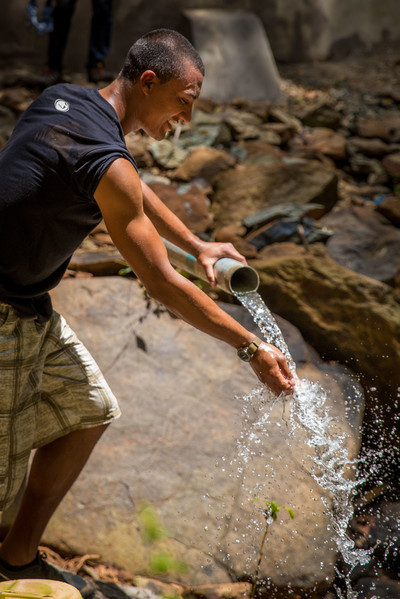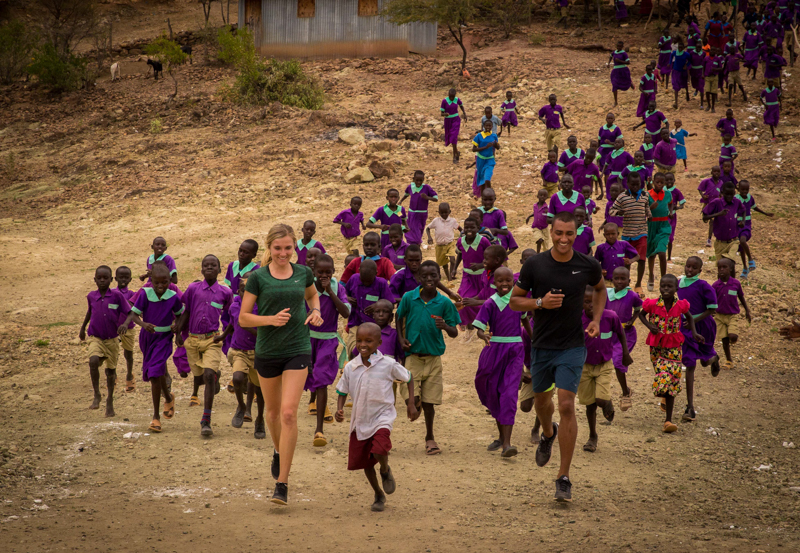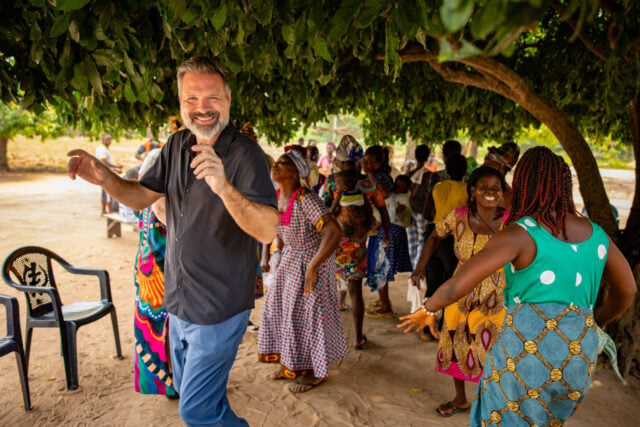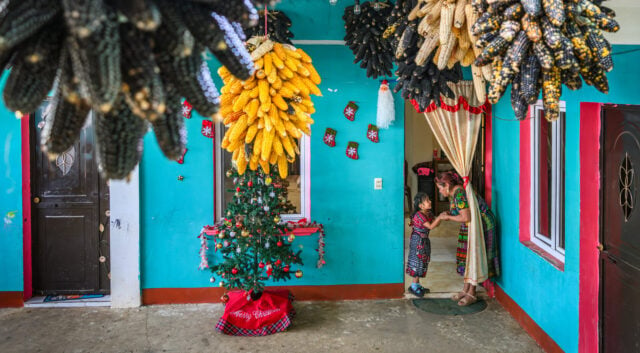On their trip to Kenya last October to visit their sponsored child, Philemon, Ashton Eaton and Brianne Theisen-Eaton learned first-hand how World Vision works in communities like Phil’s around the world. Here’s their take on child sponsorship and World Vision’s work in the field.
1. There are no shortcuts.

“[World Vision is] not just providing a short-term solution. And as athletes, we know that doesn’t work. You have to get to the root of the problem and solve it in order for life to be able to sustain itself. They go into communities and educate people — educating them on how to keep their water system going, educating the community so that kids and women have more of a voice.” —Brianne Theisen-Eaton
“Even in our very specialized aspect of track and field, we always shoot for quality over quantity. Once we heard the operational set-up that World Vision has, and the people behind that operational set up, we thought, this is a quality organization all around. They don’t cut any corners; they do it right, they do it efficiently.” —Ashton Eaton
2. Sponsorship can be whatever you want it to be.
“Your relationship can be any way you want it to be. If you want to be that ‘fun aunt’ who sends [packages] all the time and makes their day better, you can do that. If you want to send letters with words of encouragement to increase their self-esteem and have them know that they can pursue whatever they want and go to school, you can do that. If you want to [give a special gift] and make their life better, you can do that. It’s whatever you want it to be, and that’s a really cool thing.” —Brianne Theisen-Eaton
3. Changing a life has a ripple effect — on both sides.
“You are providing opportunities to another human, and they’ll provide opportunities to another human. It’s this [domino effect] down the line. This experience we’ve had will impact our kids — the things we tell them about other people, the things we show them, the experiences they have. And that will impact how they raise their kids. This line of our family that will hopefully continue on will be influenced by what we have seen here. That’s a good summation of ‘life-changing.’” —Ashton Eaton
4. It’s worth it.
“To me, it’s not even just about the money. It’s about the value you add to [a child’s] life aside from the money. It’s $39 a month — that’s a dollar a day plus a little bit. You form a relationship with another person across the world, and that’s more than just the satisfaction of knowing that you helped a kid. It’s something deeper.” —Brianne Theisen-Eaton
“When I was in second grade, we got pen pals. I thought, there’s another person across the world somewhere who is thinking about me, and I’m thinking about them. That’s the same thing with child sponsorship — there’s somebody across the world who is thinking about you. And you might be one of the most important people in their life. For a dollar and change a day, to change a life—that’s the best bang for your buck that you can possibly get.” —Ashton Eaton
5. Local World Vision staff make all the difference.
“You know that [the staff] understand the culture — it’s not somebody else coming in and turning these people’s world upside down. You know they’re working within their culture and their beliefs and making sure they communicate with [families] so they’re very much keeping these communities exactly how they should be but adding benefits like water, health facilities, and education.” —Brianne Theisen-Eaton
6. Your letters really get to your sponsored child.
“We got to go into the [World Vision] mail room. There are people actually sitting in an office translating your letters into their [local] language so they can read their letters. They drive six hours and walk a kilometer up a dirt road. They make sure your gifts are safe and deliver them to your child. There’s really a mail room that this goes through. It’s cool for us, too — when we get a letter from our sponsored kid, a lady name Lucy helps Phil write the letters. And we’ve met Lucy.” —Brianne Theisen-Eaton


